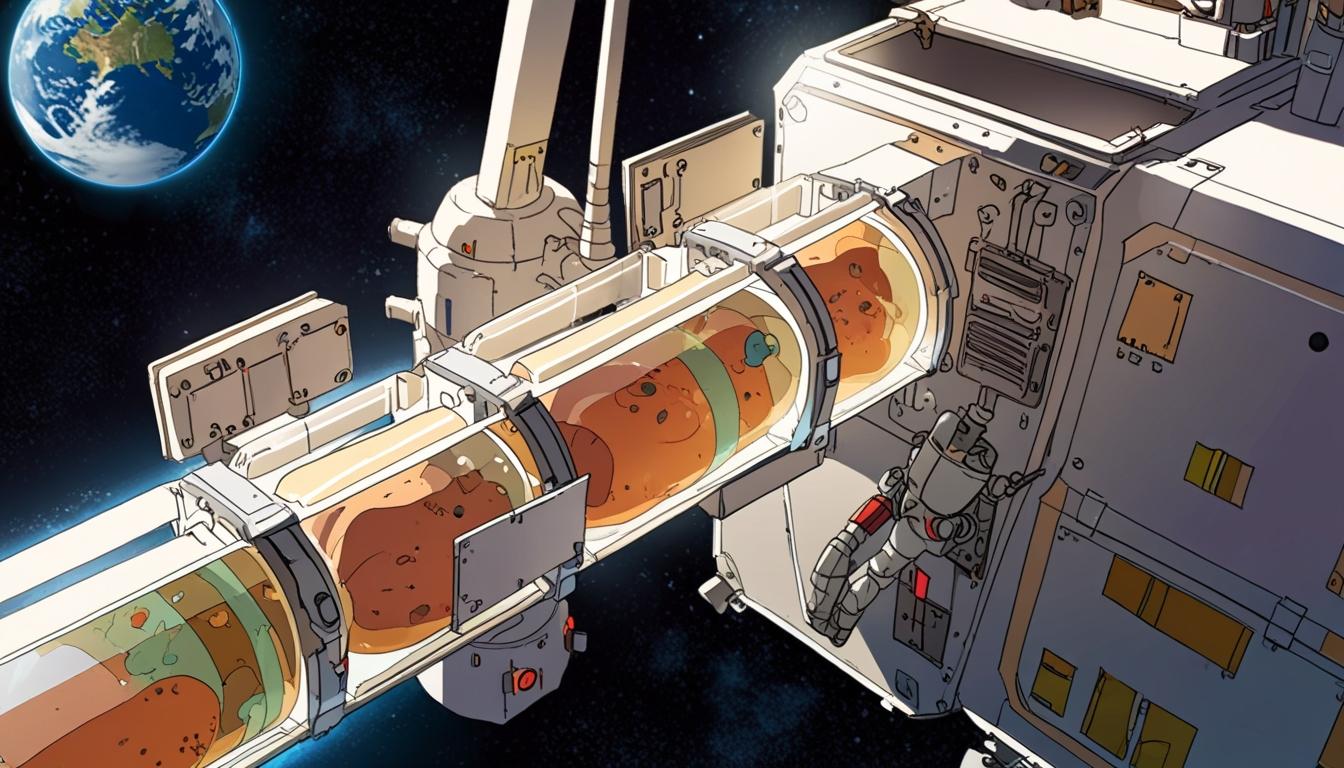As human space exploration ventures beyond the Moon, addressing the logistics of provisioning astronauts for long-duration missions has become a significant focus. Currently, sustaining a single astronaut in orbit costs approximately £20,000 per day, making the traditional approach of transporting all supplies from Earth increasingly impractical for deep-space travel. An innovative alternative involves using microbes, particularly engineered yeasts, to produce essential supplies on demand in space.
A research team led by Imperial College London has recently launched a miniature laboratory into orbit to examine the potential of engineered yeasts to manufacture food, fuel, pharmaceuticals, and bioplastics under microgravity conditions. The project, developed in collaboration with Cranfield University and the space-technology companies Frontier Space and ATMOS Space Cargo, was carried aboard Europe’s first commercial returnable spacecraft, Phoenix. The spacecraft launched on 21 April via SpaceX.
Rodrigo Ledesma-Amaro, the team leader and a researcher at the Bezos Centre for Sustainable Protein, explained the motivation behind the project: "Carrying everything we need to survive in space just isn’t practical. But if a few well-designed cells could churn out food and medicine from available resources, the economics – and the possibilities – change dramatically."
Central to the experiment is the technique known as precision fermentation, which involves programming microbes to efficiently produce complex molecules. On Earth, precision fermentation is already applied in creating products such as dairy-free milk and animal-free meat alternatives. In space, this microbial capability could become critical for supporting long-term missions and even future Martian settlements.
Upon the return of the spacecraft, scientists will conduct a comprehensive analysis of the microbes to assess how the launch stresses, microgravity environment, and cosmic radiation influence their productivity and survival. The findings are expected to advance not only space exploration technologies but also Earth-based biotechnological efforts, where sustainable food and material production are ongoing priorities.
Ledesma-Amaro reflected on the interdisciplinary nature of the project: "We’re excited that this project makes use of academic and industry expertise in physics, engineering, biotech and space science. If just a handful of cultivated cells could provide all our food, pharmaceuticals, fuels and bioplastics using freely available resources, that would bring the future closer."
The European Biotechnology Magazine is reporting on this groundbreaking study that may redefine how humans sustain themselves beyond Earth, potentially transforming both space travel and sustainable production technologies on our home planet.
Source: Noah Wire Services
